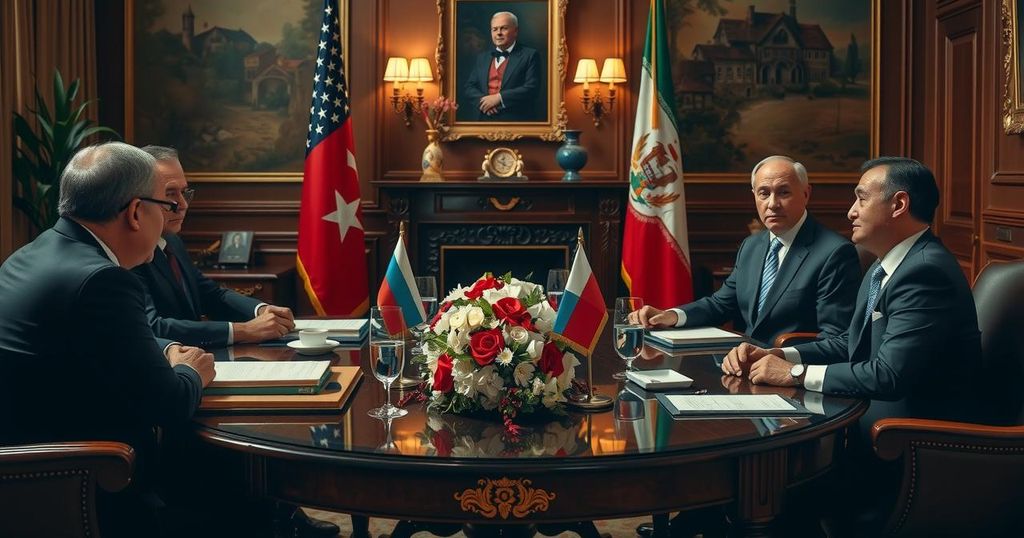Professor Muhammad Yunus Engages with Global Leaders at COP29

At COP29 in Baku, Chief Adviser Professor Muhammad Yunus met with several world leaders including those from the Maldives, UAE, Bosnia, Liechtenstein, and Bhutan to discuss strategies to combat climate change. This pivotal conference aims to enhance global cooperation in addressing environmental threats.
Global leaders and diplomats have congregated at the 29th Conference of the Parties (COP29) in Baku, Azerbaijan, to deliberate on strategies aimed at mitigating the escalating threats posed by climate change, particularly in a region known historically as a significant site of the oil industry. Chief Adviser Professor Muhammad Yunus engaged in discussions with an array of leaders, enhancing the collaborative effort to combat climate issues. On November 12, Professor Yunus conducted individual meetings with several key figures, including Prime Minister Daniel Risch of Liechtenstein, Prime Minister Tshering Tobgay of Bhutan, President Mohamed Muizzu of the Maldives, President Denis Becriovic of Bosnia and Herzegovina, and President Sheikh Mohamed bin Zayed Al Nahyan of the United Arab Emirates. These interactions underline the commitment of global leaders to foster dialogue and unity in addressing the climate crisis. Arriving in Baku on the evening of November 11, the Chief Adviser noted the paramount importance of COP29 as a “pivotal opportunity” to accelerate critical actions against climate change. Leading a small delegation, Professor Yunus is slated to return home on November 14, having contributed to a global discourse that seeks sustainable solutions to pressing environmental challenges.
The annual climate summit serves as a platform to unite world leaders and diplomats to address the pressing issues related to climate change. COP29, the latest installment of this conference series, places a special emphasis on collaborative efforts to formulate effective strategies to combat the environmental crises affecting our planet. The event underscores the significance of international cooperation, especially in regions historically linked to fossil fuel production, where the need for sustainable practices has become increasingly urgent.
In conclusion, Professor Muhammad Yunus’s participation in COP29 is indicative of the ongoing commitment among global leaders to confront climate change collaboratively. Through strategic discussions with prominent leaders, there is a shared understanding of the need for immediate action in combating the climate crisis. The conference highlights the role of diplomatic engagement in fostering innovative solutions to one of the most pressing challenges faced by humanity today.
Original Source: www.tbsnews.net








